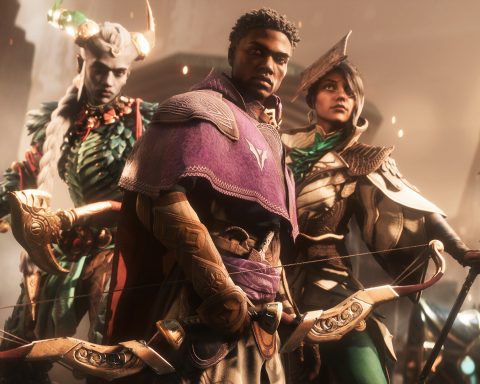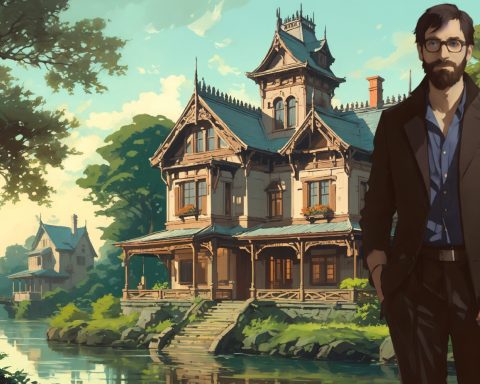EA Chief Operating Officer, Peter Moore, has confirmed something that many of us knew, but is a frightening statistic for the health of the games industry: too much revenue is generated from too few franchises.
In an interview quoted at Gaming Vogue, Moore said “If you think about the industry today, I don’t know what they exact numbers are, but the top 20 games globally probably deliver 80 per cent of the revenue. Anything that doesn’t hit that top 20 or 25 finds it very difficult to justify itself, its existence, and you kind of wonder why you did it.” Now, it’s likely there is some exaggeration in there, but the reality is that outside of a few AAA-franchises, there are very few franchises in the games industry that could be considered “healthy.”
That’s why the B-grade games and game developers are disappearing, and smaller, indie teams are forming instead. The game’s industry seems to be heading in two directions – the mobile/ download space where teams of one to10 developers are putting together experimental titles, and the really big developers churning out the AAA-grade hits.
There are problems with this model, however, that might not be immediately obvious but are going to have a negative impact in the years ahead. The chief casualty is going to be in terms of creativity and innovation. Small, indie development teams working on smart phones and tablets can be innovative, but with no guarantee of commercial success – especially if the idea is not instantly familiar to someone browsing an app store. On the iOS app store, for instance, discoverability is a genuine problem, and if you browse the top 50 game apps, you’ll see a very common thread – the ones that are successful are the ones that either build on existing commercially popular ideas, or copy them wholesale.
Given that indie developers have families and get hungry like most human beings, there’s an immediate incentive not to challenge the status quo there, and unlike big developers, indies lack the resources to research which new IP ideas would be commercially viable. The reason so many indies go out of business quickly is that they thought an original idea was going to be a good one and took a gamble that failed.
So at that end of town innovation is being stifled, with each breakout hit being followed by dozens of failed indies. With the big developers it’s going to be even worse in the future. AAA-game development costs a fortune. For instance it’s likely that Halo 4 cost in excess of $100 million to make. At that kind of scale any business owner simply cannot take risks. If this was the banking industry, a $100 million gamble investment could land a banker in jail. Nothing so dramatic happens in the games industry, but no business person with any sense will greenlight a $100 million development project unless it is guaranteed to double, if not triple, that investment in return.
And so the developers of those big budget games won’t be able to experiment with gameplay features that might alienate the audience.
To me, none of this is healthy. Looking at the other art forms, there has always been a platform for a kind of “scaled” innovation – those mid-tier creatives that are able to build up a small, but dedicated fan base that can be relied on for support and can produce mid-budget products that are free of financial constraints and yet relatively low-risk for investors. Unfortunately with the games industry, those mid-tier games tend to be the ones traded on the second-hand market, or people wait for them to be discounted. On the publisher-side, that’s why it’s only the “top 20” games that generate the revenue – these are the games that people are willing to buy on day one for full price as neither second-hand sales nor rigorous discounting help to maintain the kind of profitability that can allow additional games to be made.
As the PlayStation Network, eShop and XBLA continue to grow and branch into “full games” we may just see the mid-tier re-emerge. Protected from the negative business practices that can affect games at retail, there may just be enough return to justify the risks that this kind of development entails.
I hope so, because the games industry needs that mid-tier to continue to grow and improve.








Great article Matt,
I think this is justifying some of the big titles like COD and the likes. Big in production budget yet the sales are big as well.
Mario, well, I can't really say since every new Mario and every new Pokemon always has something that they innovate. Well, that's not actually my opinion. My opinion before with Mario was that it's not changing. But when Satoru Iwata pointed out in an interview the incremental changes in Mario and Pokemon over the years, I kind of agree. According to him it takes a lot of budget on building new IP, which is something that your article mentioned. At this point in time, it'll be hard.
I believe Sleeping Dogs is a big title for Square Enix and that game is responsible for their weak fiscal earnings the last quarter. This might make SE again to just go with whatever has proven in the past instead of doing something new. It happened with the World Ends With You. Big title, Big promotions, yet the sales were not what they expected. I believe they said before that the series was dead because their company cannot focus on titles that will
not give them money. But of course, fast forward to today, they have found a way to breathe new life to the franchise.
Yeah, I agree with your sentiments a lot Matt. The industry is becoming very two-sided now, with most either falling on the AAA side or into the risk-filled indie scene. It's sad to see many games be this way, as, from what I can tell, the last generation (GC, PS2, Xbox) thrived off of and grew the games industry mainly from mid-budget games.
Absolutely. The great thing about the mid-tier (and indeed shovelware, which is also disappearing) is that it's a training ground for the future big-budget game developers.
I should have mentioned in the article, but it came to me late – if the mid tier goes away, then who will develop future AAA-games once the existing developers retire, move on, or start up their own indie studios? It's a difficult question to answer. Big studios won't hire someone whose experience only extends to a couple of iOS minigames.
Back in the PS2 and GC days, there was indeed a robust mid-tier development scene, and the people that worked on those games often moved into the big studios for this generation. There's a real risk of a "brain drain" if that mid-tier doesn't come back.
There's another really great example – Kingdoms of Amalur. A development studio was started up, and took a risk making a new IP. That IP failed to sell, hundreds of people lost work.
It's very, very difficult for a startup development studio – you either make iOS games, or take a big risk with a big game. In times gone by you'd make some shovelware or something to pay the bills while you work on the big project.
Sleeping Dogs is another unfortunate case. It was an Activision game, who dumped it. Square Enix took a risk and published it anyway. It's a good game, it failed to sell. Of course Square Enix is going to not greenlight a sequel.
The games industry really needs to be able to allow failure if there's going to be innovation brought back into it. Perhaps it needs tax breaks? There's a few different ways that it can be solved.
Thanks for dropping by!
And then there are cases like Mass Effect: A new IP which becomes a success, but then sees reduced budgets, short productions schedules and an alteration in its overall plot meant to change it from a trilogy to an ongoing series.
EA is its own worst enemy.
Dragon Age 2 also suffered from a constrained budget and development style.
The only reason I can think of is that the RPG genre itself – not so much the actual games – carries a high risk profile. Smaller install base, harder to market. EA's more generous with the genre than most (Activision, for example), but I suspect that EA considers the profitability of the RPG genre as lower than, say, Battlefield.
If DA2 had been as good if not better than the first they'd at least of seen equal sales. Instead they cheaped out, focused more on getting the game out within a window that rewarded stockholders, and largely ended up hurting the franchise.
I certainly agree that they damaged the franchise with DA2. As for why they did, I'm not certain it was to appease the shareholders.
I really do think with RPGs, it's risk profile. Aside from Elder Scrolls, and perhaps Mass Effect, I can't think of a single AAA-budget RPG that is not a high risk investment. Dragon Age is a very young franchise, and has had one critically acclaimed and OK-selling RPG (outside of the US Dragon Age actually sold quite poorly), so it was pretty impressive that the second game was made at all. Given how it was critically and commercially panned it's even more impressive that the third game has been given such a long development cycle.
For a company to feel secure about a AAA-game, it needs to have a more global appeal than Dragon Age does, so I'm personally not surprised that EA was risk-adverse with the sequel.
People tend to give EA a hard time, but EA, of all western publishers, takes on the most risk. The company developed and published experimental titles like Boom Blox and Mirror's Edge, but even more importantly, under the EA Partners label, the company has invested in some incredibly risky projects:
Shadows of the Damned
Brutal Legend
Kingdoms of Amalur
The Secret World
Only Warner Bros (and only recent years Warner Bros, at that) is as willing to take on risky third party projects like that. And EA can only do that because EA is so risk adverse with its major projects.
I partially blame the Recession, increased hardware specs, and the Western manifestation that bigger and more is better 😛
Absolutely the recession has played a big role – customers are themselves more risk adverse meaning there is less of a customer base for niche or B-grade games. Great point.
And what about Mirror's Edge? That seemed to be successful and yet EA can't seem to decide whether or not it wants to do a sequel!
One thing I think is for sure – the ridiculous costs of console development can only lead to more and better games for PC and mobiles.
Games still sell better on consoles than PCs, and mobile games are little more than 16bit titles with far better graphics.
Regardless of whether or not EA takes the risk in making an RPG, the fact remains that once that IP proves its worth sales well and turns a profit, chances are good that EA will turn right around and sabotage the IP by slashing its budget while demanding a quicker turn around.
I just wrote a reply, but it's going to be an article on the site next week. 🙂
I've got very strong feelings on this very issue, because I also think that this is a beam of light that's shining on a much larger shift in the gaming industry as a whole. And it's one that *gamers* choose to ignore.
I forgot that it was from Activision. Oh my, the execs there might be laughing right now. Why did Square Enix get it anyway? One thing I believe is to make a presence. Perhaps they researched history and found out the game has a potential to sell to the "western" crowd. And it didn't. This is one reason why Square Enix is a really good company in Japan, not in the west. Or perhaps being a Japanese company, they know what the Japanese wants. I really hope they really wont go down and just make shooters for the west, but if that's what will sell….
Yeah Matt, I drop by a lot, the problem is I can't keep track with what comments I made here and there. Only now did I find the Disqus Dashboard to be really helpful. 🙂